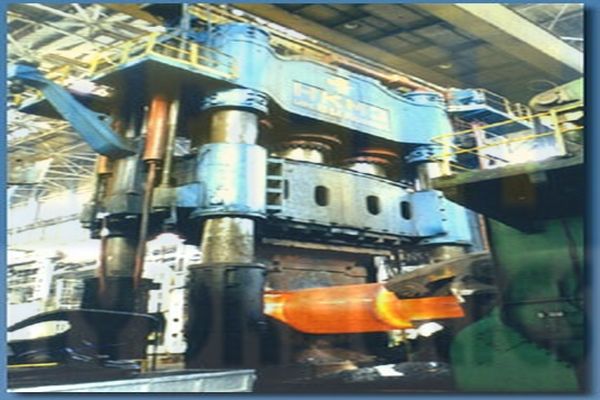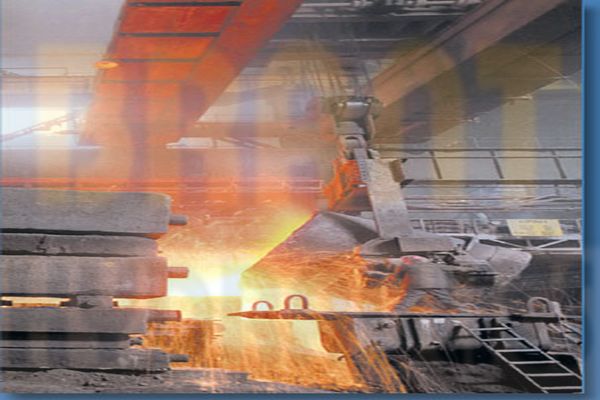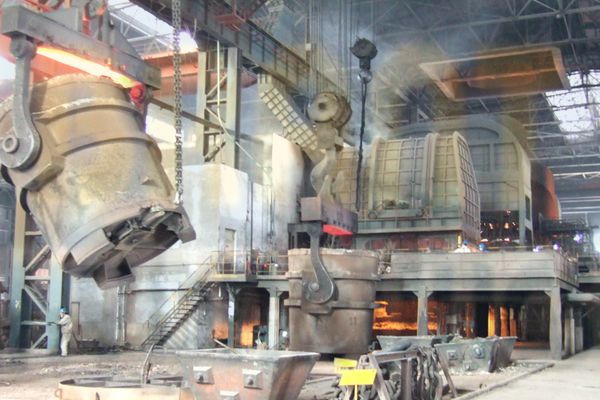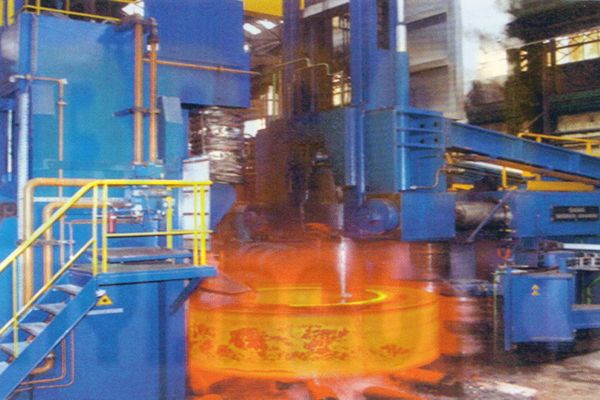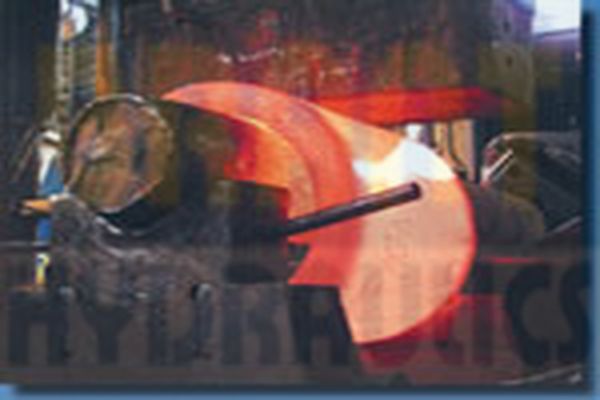Forging & Casting
Forging is a manufacturing process involving the shaping of metal using localized compressive forces. Forging is often classified according to the temperature at which it is performed: cold forging, warm forging, or hot forging. For the latter two, the metal is heated, usually in a forge. Forging is a very important manufacturing process. Forged part has high physical strength and good tough property. Forging process is used in auto industrial, machine industrial, and construction industrial parts.
For forging part manufacture, the designer should consider the following: shape, parting line, draft angle, corner radii, fillet, wall thickness, tolerance and machining allowance.
In Brant Hydraulics' forging shop, forged parts are forged in computer-controlled induction furnaces, their temperatures are 100% under control and recorded, and forging machines are used.
In our production lines consisting of mechanical presses, screw friction presses, hydraulic presses, one-way impact pneumatic hammers, from 0.05 kg (according to the part geometry) – up to 150 kg or up to 500 mm in diameter – up to 1000 mm in length. We produce parts with steel forging technology.
In our process that offers flexibility and reliability together, 30% of our parts constitute sensitive hydraulic cylinder parts, which is an indication of the trust of our customers.
We provide the below services:
Open Die Forging Process-- When flat dies that have no precut profiles engage in forging, the process is called open die forging (or smith forging). The open design allows the metal to flow everywhere except where it touches the die. To achieve maximum results, correct movement of the workpiece, which should be over 200,000 lbs. in weight and 80 feet long, is essential. It is useful for short-run art smithing or for shaping ingots prior to secondary shaping measures.
Closed Die Forging Process-- Closed die forging, sometimes called impression die forging, employs the use of molds. These molds are attached to an anvil while a hammer forces molten metal to flow into the cavities of the die. Multiple strikes and/or die cavities are often used when forging complex geometries. High initial tooling costs make closed die forging expensive for short-run operations, but the forging process becomes cost-effective as parts produced increases. Closed die forging also provides exceptional strength over alternative methods. Common applications of closed die forging include the production of automobile components and hardware tools.
Press Forging-- In press forging, the main forming factor is compression. The metal sits on a stationary die while a compression die applies continuous pressure, achieving the desired shape. The metal's contact time with the dies is considerably longer than other types of forging, but the forging process benefits from being able to simultaneously deform the entire product, as opposed to a localized section. Another benefit of press forging is the ability of the manufacturer to monitor and control the specific compression rate. Applications of press forging are numerous, as there are relatively no limits to the size of product that can be created. Press forging can be hot or cold forged.
Roll Forging Process-- Roll forging is the process of increasing rods or wires in length. The manufacturer places heated metal bars between two cylindrical rolls, which rotate and apply progressive pressure to shape the metal. Benefits of roll forging include the elimination of flashing and a superior grain structure.
Casting
Hydraulic cylinders in the die casting industry work under most difficult conditions in extreme surroundings such as tight spaces and high degrees of pollution and high temperatures. Manufacturers of dies, moulds and tools request customized technology and tailored hydraulic cylinders. To fulfill these requests we draw from our vast experience in die casting technology to develop and improve our products. Brant Hydraulics do not only focus on constructing the cylinder with its function but take a close look at the environment with our customer. Apart from the parameters of the hydraulic circuit finding the balance with other components plays a significant part.
Brant Hydraulics specializing in the manufacturing of castings and machined parts in carbon steel and alloy steel, our company is a large-scale professional investment casting foundry with powerful machining capabilities in Taiwan which enable us to supply precision casting parts with large annual capacity of over 10,000 tons, and the products are mainly exported to Europe, America, Japan and other destinations around the world.
With these advanced facilities & instruments, we are able to supply the high quality castings to our customers, and make products meeting comprehensive inspection requirements on chemical composition, mechanical properties, non-destructive testing and high precise dimensional inspections.
Our products cover a wide range of industries including train & railway, automobile, trucks, construction machinery, mining machinery, forklift, agricultural machinery, shipbuilding, petroleum machinery, construction, valve and pumps, electric machine ,hardware, power equipment and so on. We are capable to produce products according to customers’ drawings or samples.
Contact us or Email us for more details.
